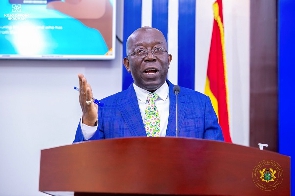 Director General of SSNIT, Dr. John Ofori-Tenkorang
Director General of SSNIT, Dr. John Ofori-Tenkorang
The National Pensioners Association, a group representing the interests of retirees in the country, has praised the Social Security and National Insurance Trust (SSNIT) for increasing monthly pension payments by 25 percent.
The increase was announced by SSNIT Director-General Dr. John Ofori Tenkorang, and will be applied to all pensioners on the SSNIT pension payroll as of December 31, 2022 and be effective in January 2023.
Following a meeting with the Director-General, the Association said they were “excited” about the increase in pensions, but called on government to prioritise the welfare of its members.
The Association’s General Secretary, Stephen Boakye said: “If you are given a huge amount today and tomorrow we do not get anything, how will pensions remain sustainable for generations to come?”
Dr. Ofori Tenkorang acknowledged the Association’s concerns and emphasised that SSNIT remains committed to paying pensions for as long as pensioners are alive.
He added that SSNIT is committed to being “very prudent” in managing the pension fund; and that the decision to increase pensions was made in consultation with the National Pensions Regulatory Authority (NPRA), in line with Section 80 of the National Pensions Act 2008 (Act 766).
The increase in pensions will be applied as a fixed rate of 19 percent, with an additional redistributed flat amount of GH¢73.58. According to SSNIT, this redistribution is a mechanism applied to the indexation rate to cushion low-earning pensioners in conformity with the solidarity principle of social security. As a result, the effective increase in pensions will range from 19.05 percent for the highest-earning pensioner to 43.53% for the lowest-earning pensioner.
In addition to increasing monthly pensions, SSNIT has also increased the maximum insurable earnings for 2023 to GH¢42,000 from GH¢ 35,000. This increase was made in consultation with the NPRA in accordance with Section 63 (3) of the National Pensions Act 2008 (Act 766). The minimum insurable earnings have also been increased from GH¢365.33 to GH¢ 401.76, following the raise in National Daily Minimum Wage.
Dr. Tenkorang also addressed concerns about sustainability of the pension fund. He acknowledged that while the 25 percent increase in pensions is significant, it is important to also consider the fund’s long-term sustainability.
He also highlighted the redistribution mechanism applied to the indexation rate. He explained that this redistribution results in some pensioners receiving an increase of more than 25 percent, with the highest increase being 43.53 percent for the lowest-earning pensioner.